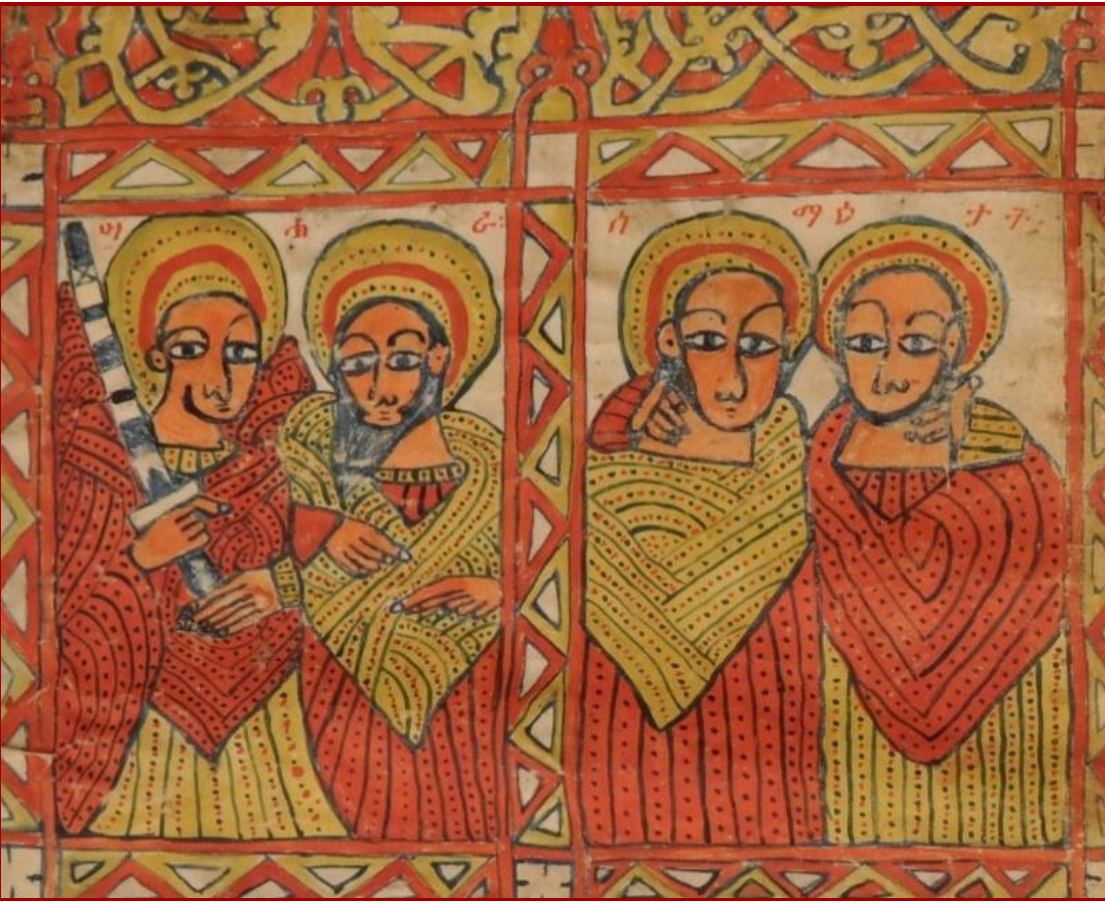Ethiopic Hagiographic LiteratureManuscript Tradition, Textual Transmission, Motifs, and Use
8 October 2024
International Workshop funded by the project ‘The Gǝʿǝz Version of the Passio of St Cyricus (Gadla Qirqos): A Critical Edition, Translation, and Commentary’
Tuesday, 8 October 2024, Wednesday 9 October 2024
Asien-Afrika-Institut, Universität Hamburg, Room 221
Convenor: Vitagrazia Pisani

MS Ethio-SPaRe KY-001, Gadla sama'tat, f. 4v, upper part, 15th cent.
The main scope of the DFG project ‘The Gǝʿǝz Version of the Passio of St Cyricus (Gadla Qirqos): A Critical Edition, Translation, and Commentary’, hosted by the Hiob Ludolf Centre for Ethiopian and Eritrean Studies since 2022, is to provide a reliable critical text of the Gadla Qirqos, the Ethiopic version of the Passio of St Cyricus. This is a central text of Ethiopic hagiographical literature found both in the manuscripts of the large collection of the Gadla samāʿtāt, but also enjoying independent circulation in a considerable number of manuscript witnesses. These factors, alongside its textual history and its linguistic and philological features, make it a rewarding case study for a hagiography that was translated into Ethiopic and that at the same time also enjoyed wide circulation and acceptance.
The upcoming workshop, organized as part of this ongoing project, aims to broaden the research focus to other Gǝʿǝz hagiographic texts, either in the established form of Gadlāt or not, including texts related to local Ethiopian and Eritrean saints as well as translated martyrdoms and passions of universal and foreign saints. Through the presentation of various cases, the workshop seeks to provide an opportunity for a prolific exchange and discussion of the meaning and importance of these central texts of Ethiopic literature.
Key points of the workshop will be the origin, composition, and provenance of the texts; their manuscript tradition, philological analysis, and methods of edition and reconstruction; and the literary and cultural significance of the hagiographical motifs that characterize these narratives.
Moreover, the workshop intends to include in the debate other texts and genres from within the Ethiopic literature that may reveal significant connections with the hagiographic genre, and it will thus try to involve other disciplines of study, opening the possibilities for exploring additional avenues of inquiry. These may involve (but are not limited to): examining the linguistic elements and influences present in the Gadlāt, evaluating the degree of historical reliability of these texts and of their references to the original contexts, exploring the presence of their narrations and motifs in historiographical, liturgical, and devotional texts, as well as in miniatures and wall paintings, and investigating the use and reception of these texts, their contents, and their manuscript witnesses in order to understand the historical and ecclesiastical landscape of the making of saints in the Ethiopian and Eritrean contexts.

